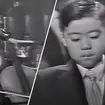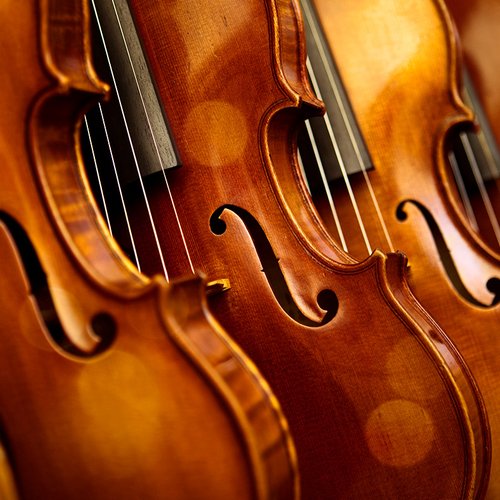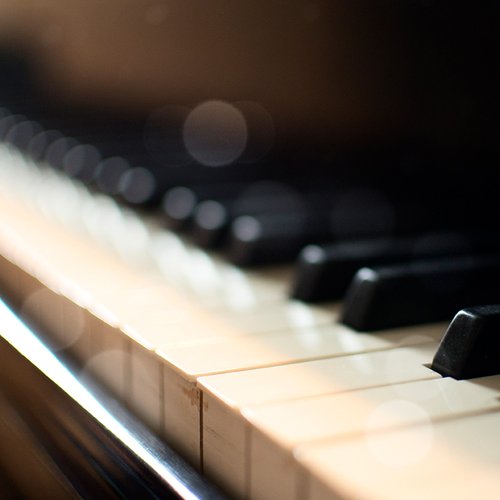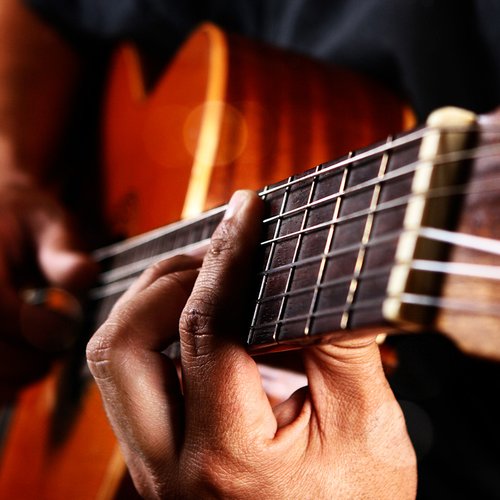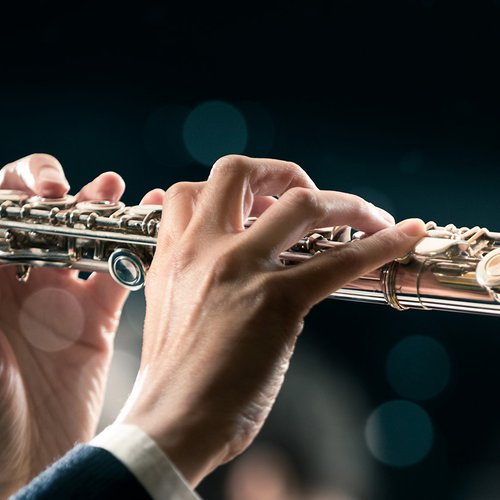Inspiring moment 92-year-old with dementia remembers Beethoven’s ‘Moonlight’ Sonata on piano
16 November 2020, 12:29
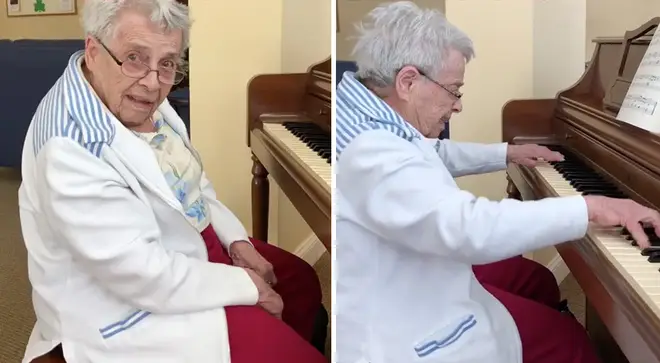
Learning to play Beethoven on the piano is a joy that will never leave you, no matter what life throws at you…
This moving video of a 92-year-old pianist playing Beethoven speaks to the incredible power of music to unlock memories – even for people living with severe dementia.
Elaine Lebar, a former composer and music teacher, started playing the piano aged three and went on to study at a school for the performing arts in New York City. After getting her BA from Brooklyn College, majoring in Music, Elaine took her studies to the University of Missouri for an MA in music education.
She went on to compose traditional piano and vocal music and, after becoming intrigued by the skill it required, composed several piano solos for one hand.
Ten years ago, she started showing signs of dementia. And in 2017, she was moved to a care home, Buzzards Bay memory care facility in Sagamore, Massachusetts.
Elaine’s short-term memory is now nearly non-existent. She can’t always remember the names of staff and often struggles to remember whether her daughter has visited that day. But one memory that always comes back to her is music.
Read more: Spine-tingling moment ballerina with Alzheimer’s remembers routine to Swan Lake >
“We’re moving onto a third movement,” her daughter, Randi Lebar, says in the video (watch above).
“Okay,” Elaine nods.
“Of the ‘Moonlight’ Sonata,” her daughter adds. “Okay, go ahead.”
“I don’t know it,” Elaine claims, before rattling off the movement’s electrifying opening broken chords with astounding accuracy.
Randi regularly posts videos of her mother playing piano on Facebook. But she recently decided to also share her talents on TikTok under the username @orifbone, with the message, ‘Sharing my mom with the world to raise awareness of dementia’. The above video now has nearly 7m views on the platform.
Speaking about her mother’s story to Metro, Randi says: “Although she can dress and feed herself, she has almost no short-term memory. Five minutes after playing piano, she will not remember that she played.
“Thankfully, she does recognise me most of the time. Her mind is sharp despite the dementia, as you can see in the videos with the conversation.
“Although music has always been important in her life, now it’s really the only thing that makes sense.”
Due to the coronavirus pandemic, Randi’s visits to her mum’s care home have sadly been limited since March. But when she does manage to see her, she makes sure to grab a video of her mother doing her favourite activity.
“The first time I was allowed to visit with her in person at the piano was 18 Sept 2020,” Randi says. “As she struggled through ‘Clair de lune’ – my favourite – I realised how much she (and I) had lost in the preceding six months.”
The Debussy piece (watch above) was Elaine’s first foray on TikTok, and the video now has more than 60,000 views, with nearly seven million on the ‘Moonlight’ Sonata clip.
Telling of her mother’s amusing reaction to her own viral success, Randi said: “After explaining the site as clearly as I could, her response to the fact that hundreds of thousands of people were watching her videos was, ‘They must have too much time on their hands. They need something better to do.’
“Sadly, I was not recording at that time!”

Ballerina with Alzheimer’s listens to Swan Lake, and it all comes back
A number of videos have been doing the rounds in recent months with proof of the memories unlocked by the power of melody. Paul Harvey, a 92-year-old former composer with dementia, went viral this year for his remarkable off-the-cuff piano improvisations on live TV.
And just last week, the Internet collectively wiped away a tear at the moment Marta González, a former prima ballerina with Alzheimer’s, listened to Tchaikovsky’s Swan Lake and remembered all the choreography.
Studies actually show that music may actually alleviate symptoms for people living with dementia and make them feel much happier.
Speaking to Classic FM, Grace Meadows, programme director of Music for Dementia, said: “Music can be a lifeline for people with dementia. It facilitates shared, quality musical moments with friends, family and carers. Music for people living with dementia isn’t a nicety, it’s a necessity.”














